Bangladesh is a nation of rivers: it has more than 700 of them. All those rivers add up to 8000 km of extra roads, if you will, and travel and transport on them is a natural part of life. Like the railway in India, waterways are the lifeblood of Bangladesh; from Dhaka the beating heart, veins snake out all over the country. And in much the same way that no trip to India is complete without a journey by train, a trip to Bangladesh calls for a journey by river.
And sure enough, I ended up on a lot of different boats on my travels in this pretty little green country. A bamboo mat on a rowboat drifting on skinny channels in a mangrove swamp:
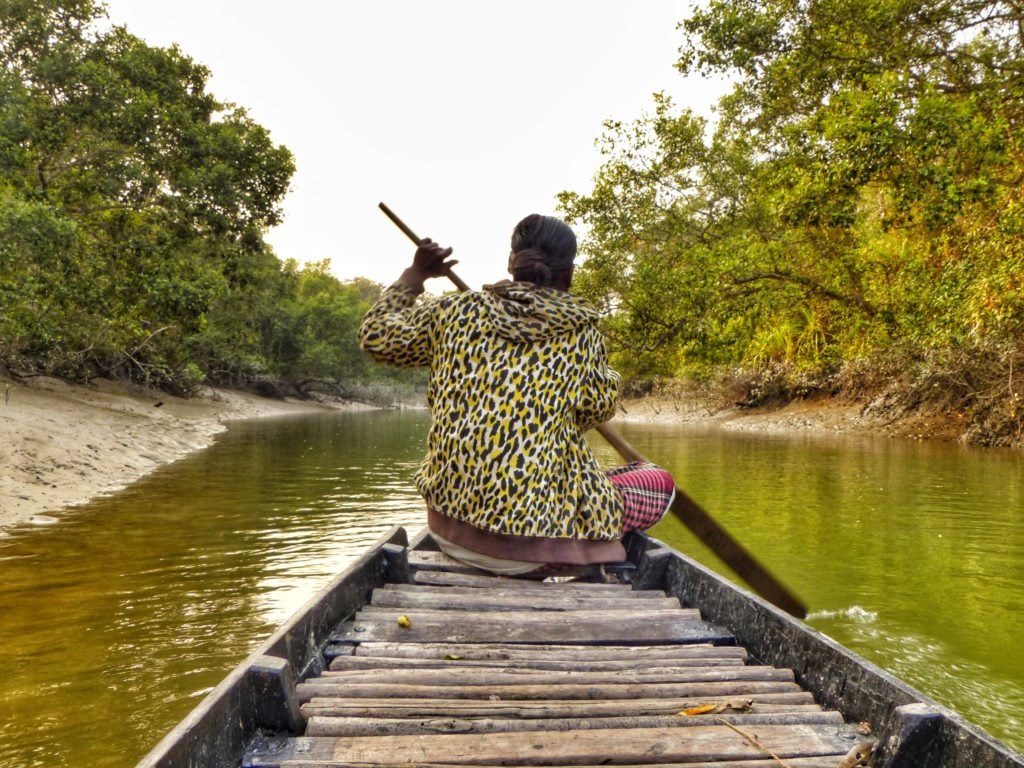
The splintery deck of a motorboat sputtering along the water to the next village:
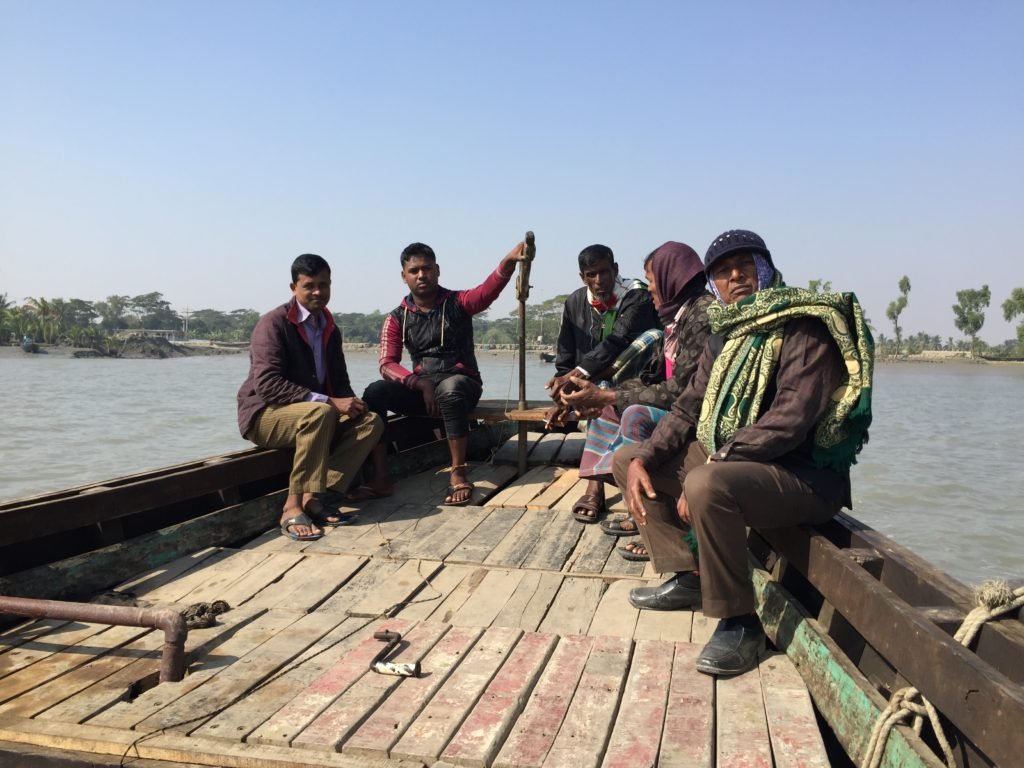
And most notably, a couple of small flat wooden boats acting as passenger ferries on the river (pick a river, any river).
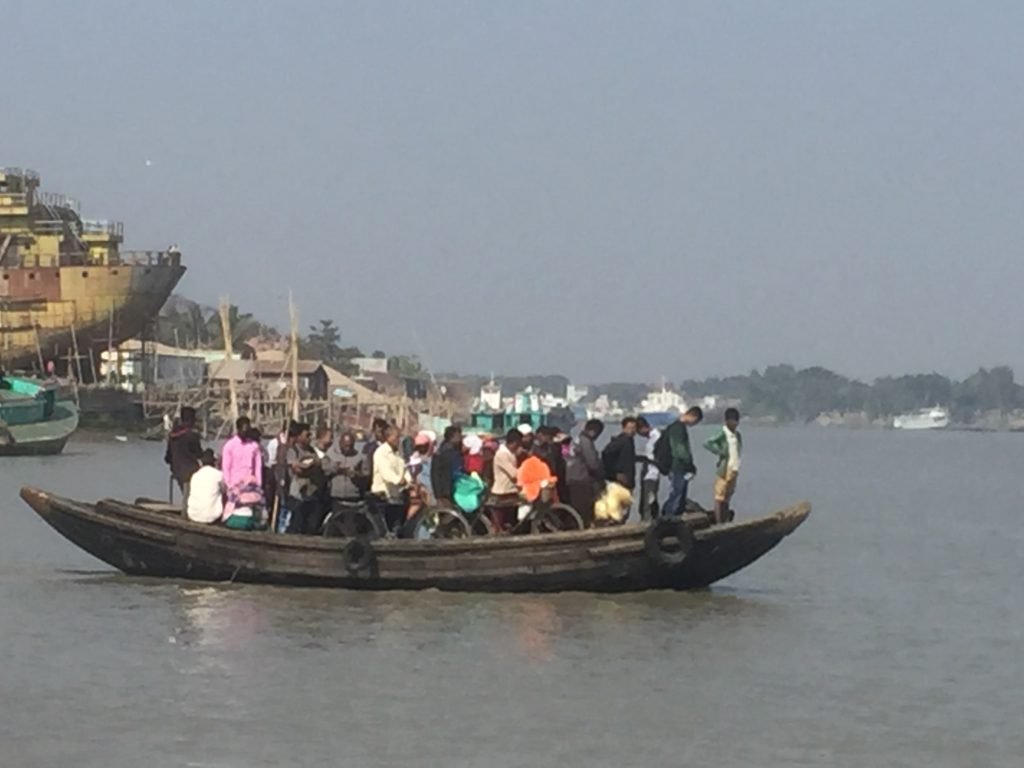
These are standing-room-only and jam-packed with people. I’d wobble aboard the flat deck and try to keep my balance as the ferry trundled across. Then I’d watch as the rest of the crowd swayed in perfect unison with the boat and checked their phones, as though they were just standing on the street instead of on what I considered a perilous wreckage looking to happen.
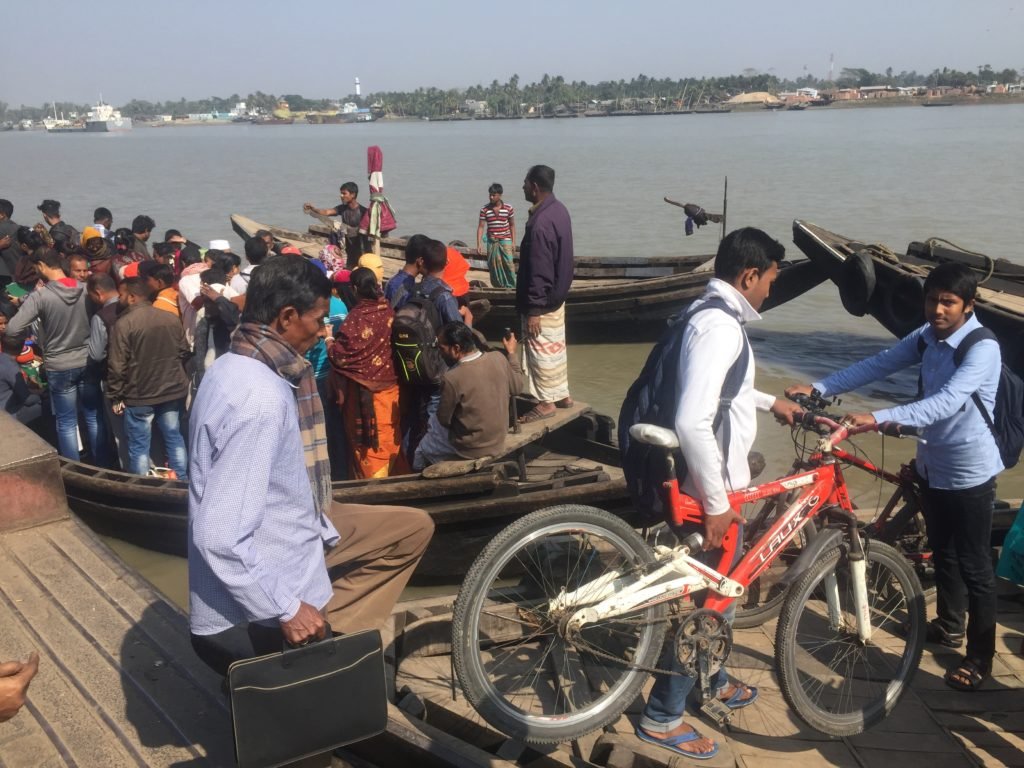
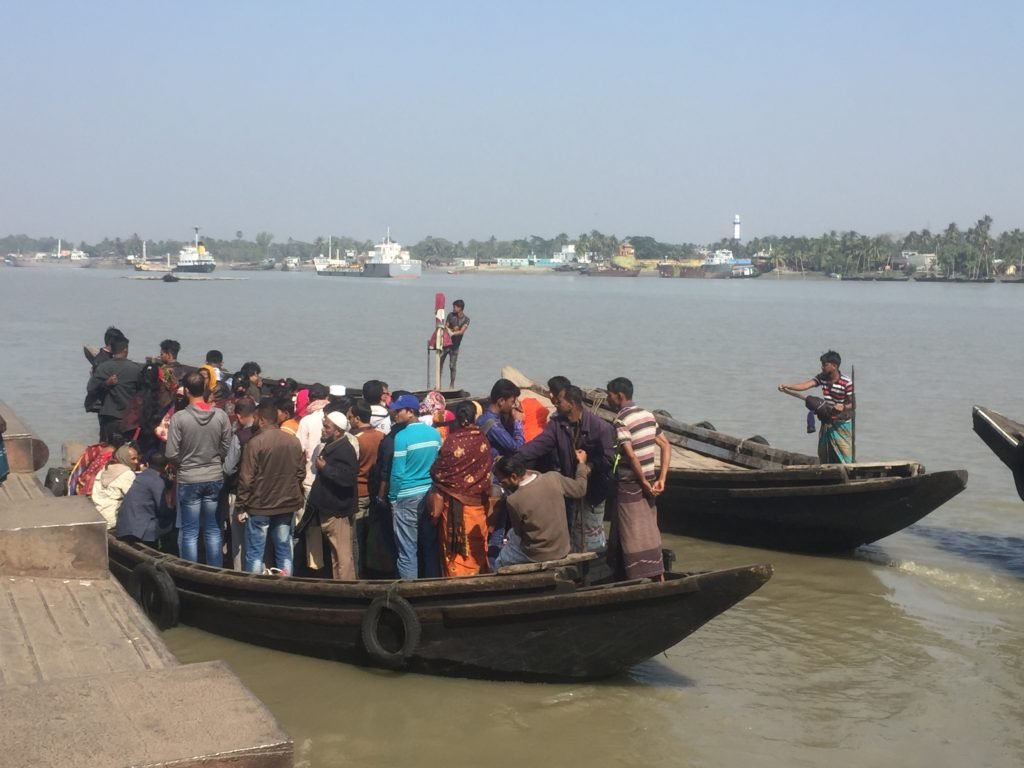
But my favourite river journey of all was an overnight trip on the Rocket.
Bangladesh’s most famous water-going attraction is a small fleet (ok, there are four) of early 20th century paddlewheel steamers collectively known as the Rocket. So called because they were once the fastest thing on water, the Rockets ply the Buriganga river from Dhaka to distant towns on the edge of the Sundarbans National Park, Bangladesh’s other claim to fame. A journey on the Rocket is no longer a romantic spin of a paddlewheel into the past – the Rockets are now diesel-powered. They’re also slow – outstripped by modern ferries with more creature comforts. But I didn’t care how long the journey would take: I wanted the iconic river trip on the Rocket, chugging upriver in peace and quiet, away from the madness of the city. Besides: although I liked Dhaka, nothing sounded more appealing than leaving it. Even aboard a diesel-powered 100 year old ‘vintage’ vessel, in a country where I assumed overloaded boats sank on a regular basis.
Of course, I’d need a ticket to ride the Rocket. Although the Rocket itself has made it into the 21st century anything associated with it has not, least of all the ticket booking procedure. This meant I’d have to find the office in Dhaka and book passage in person. There was a booking office nearby but I walked over only to find a teastall outside a rusty, locked gate. I got in a rickshaw and rode to the next known location. The rickshaw driver couldn’t find the address and he put me out at a major intersection, shrugging and pointing vaguely down the street. I followed some bad directions from well meaning locals before finally going into a large hotel and putting the concierge and two front desk staff on the case. It seemed like they had never heard of this most famous and iconic riverboat but they tracked down the address while I drank a coffee in the lobby, thinking ‘This boat had better be good. At least, it better not sink.’
Finally at the office I sat around for some time while three men behind a desk drank tea and looked at a calendar. Eventually their general consensus was that there was no Rocket to Khulna, the town at the end of the line. No Rocket at all, for the rest of the month. This seemed unlikely to me, and I realised that although the boat wasn’t running all the way to Khulna it might be running at least to Hularhat, so I suggested that I could get off there instead. It sounded like a good idea to the three men and in the end I got a ticket for a first class cabin to Hularhat by pointing at each square on the calendar for the rest of the week and saying ‘Hularhat? Yes or No?’.
Since I still had another day or two to kill before the Rocket’s launch, I decided to daytrip out of the city. My new friend Mr. Ali the Rickshaw Driver had volunteered his services as a guide to Sonargaon, the ancient Bengali capital that’s almost been swallowed up by Dhaka. He’d hinted – and then flat out said – that as a woman travelling alone I might face problems, the nature of which he did not reveal. Ignoring that sales pitch I got up early the next morning and caught a bus amidst stares from the rest of the passengers who probably shared Mr. Ali’s concerns.
About an hour later I hopped out when the driver pulled over near a turnoff. One of his sidekicks nudged me and they both pointed down the road into the distance. From the turnoff it’s a short walk to Painam Nagar, the ruins of a street of once-elegant mansions.
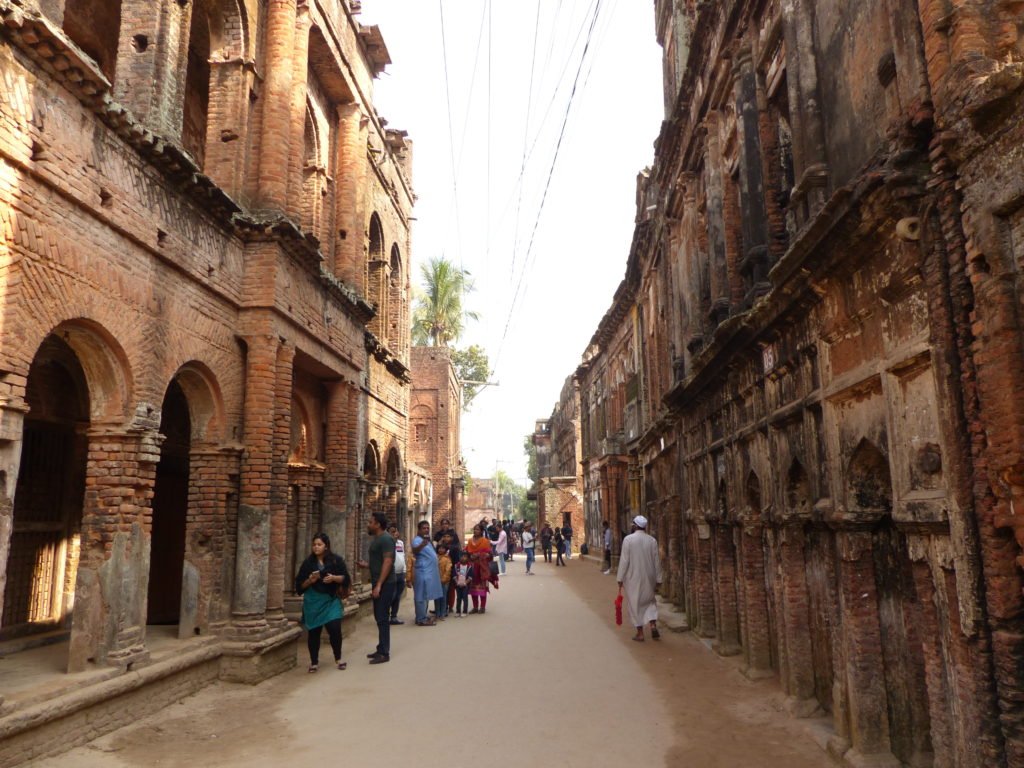
Built around 1900 the homes belonged to wealthy Hindu merchants, most of whom fled to India during Partition.
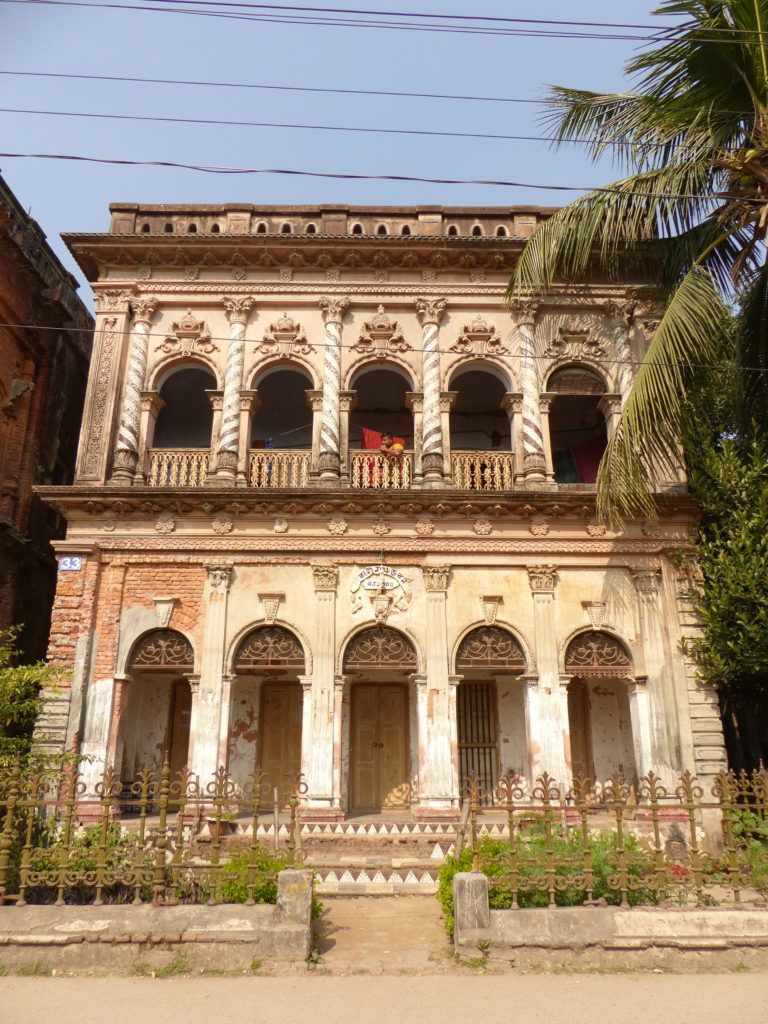
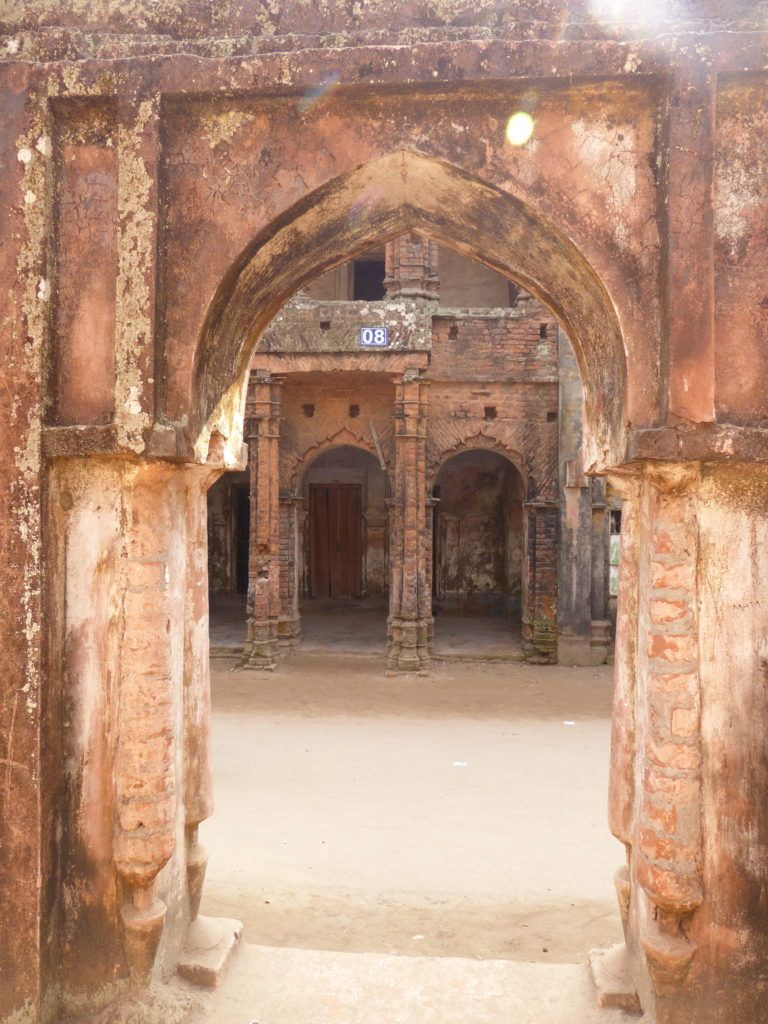
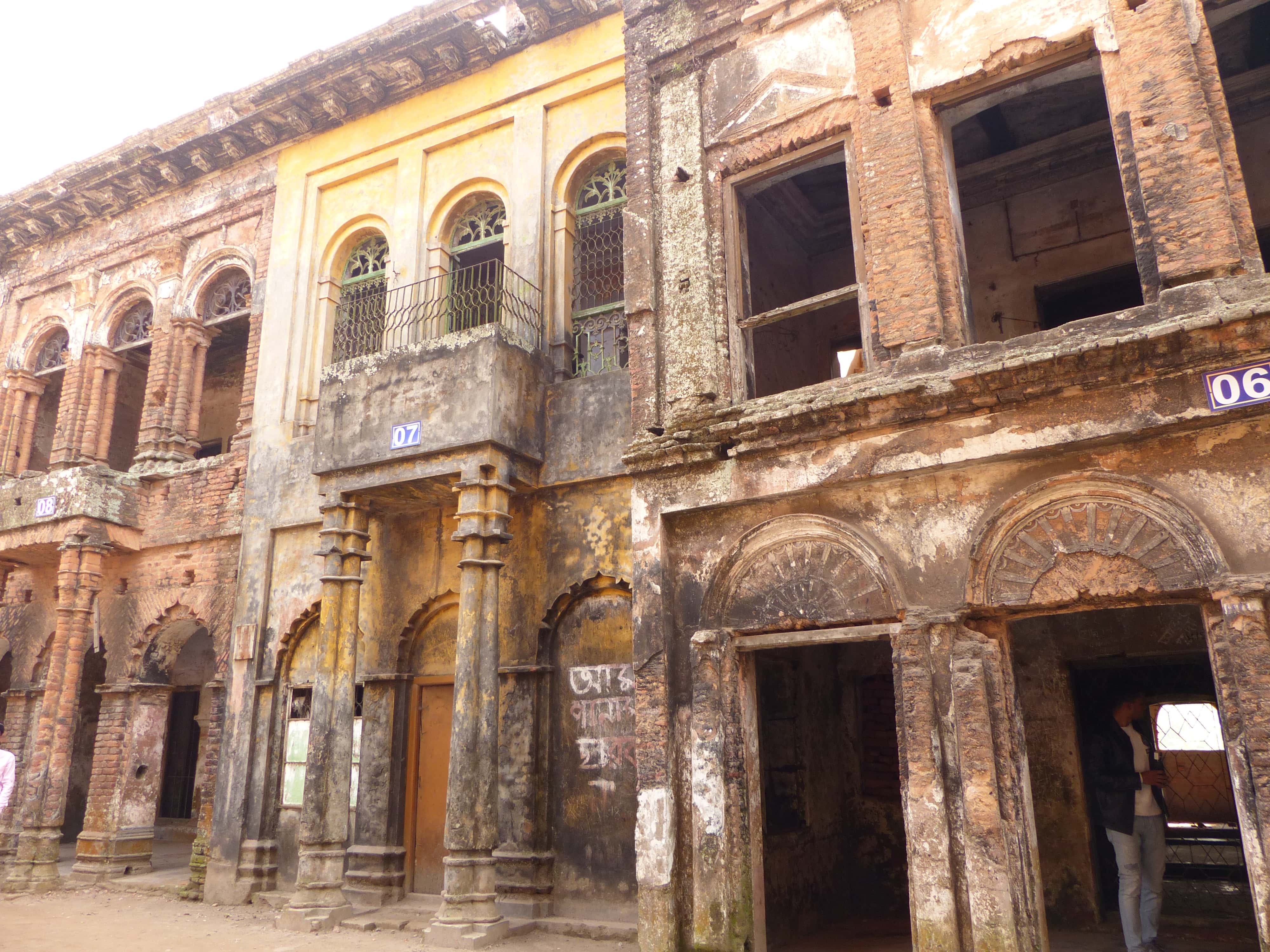
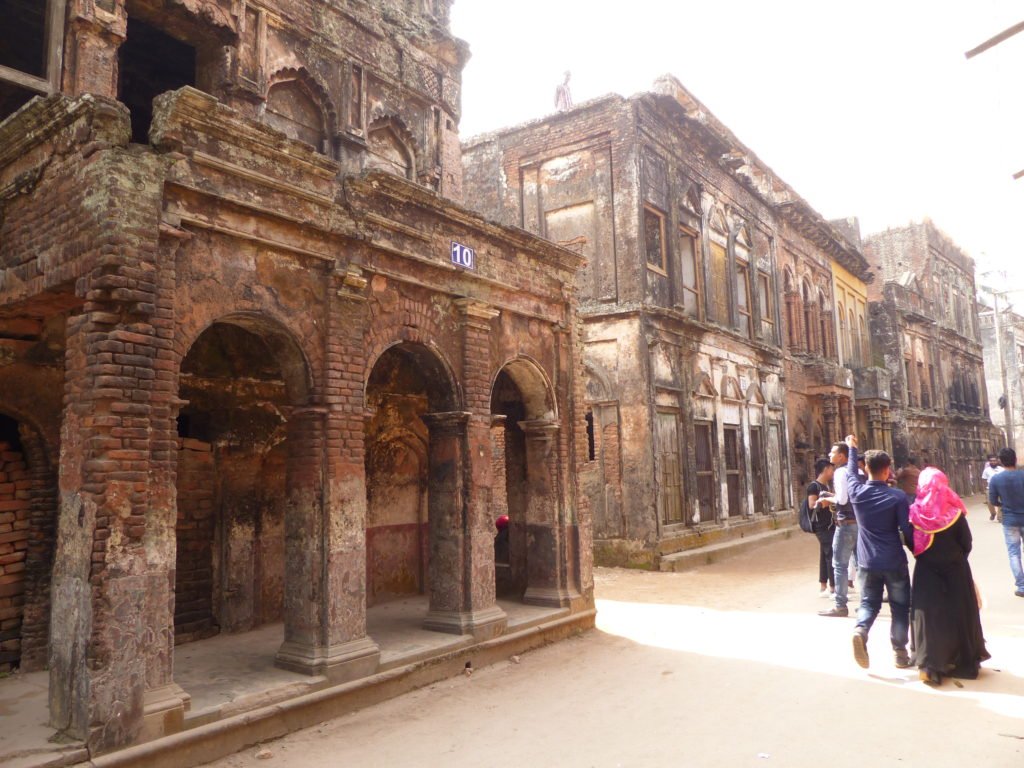
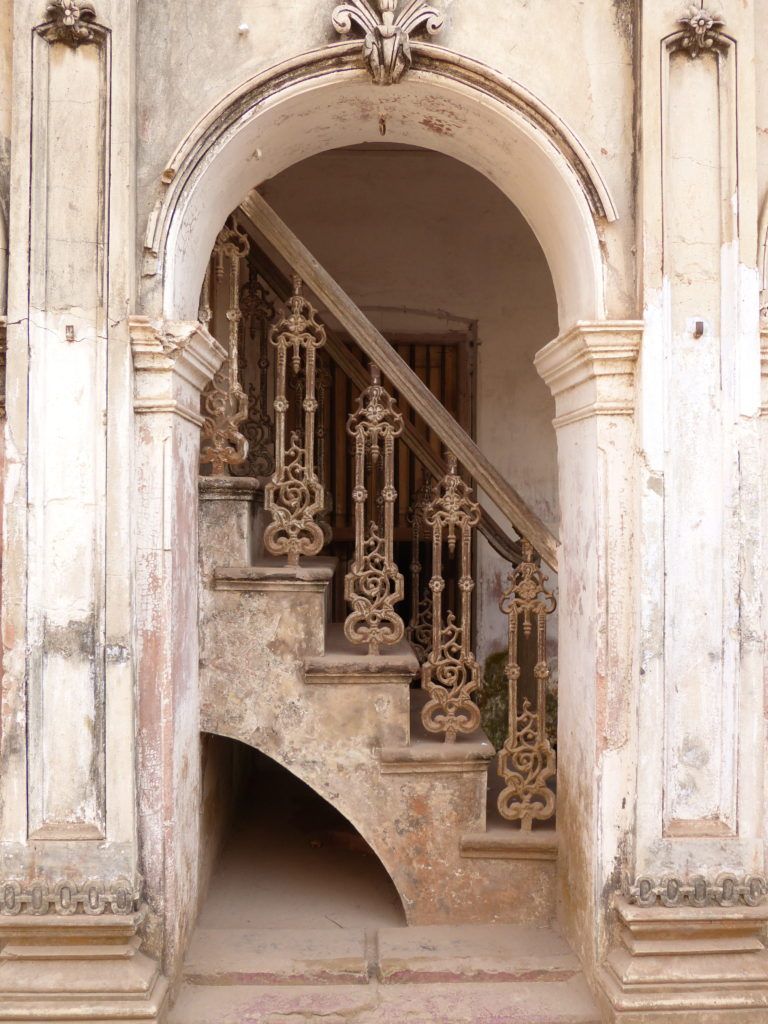
Goaldi Mosque, built in 1519 and one of the oldest in Bangladesh is another walk through the fields behind the modern-day village.
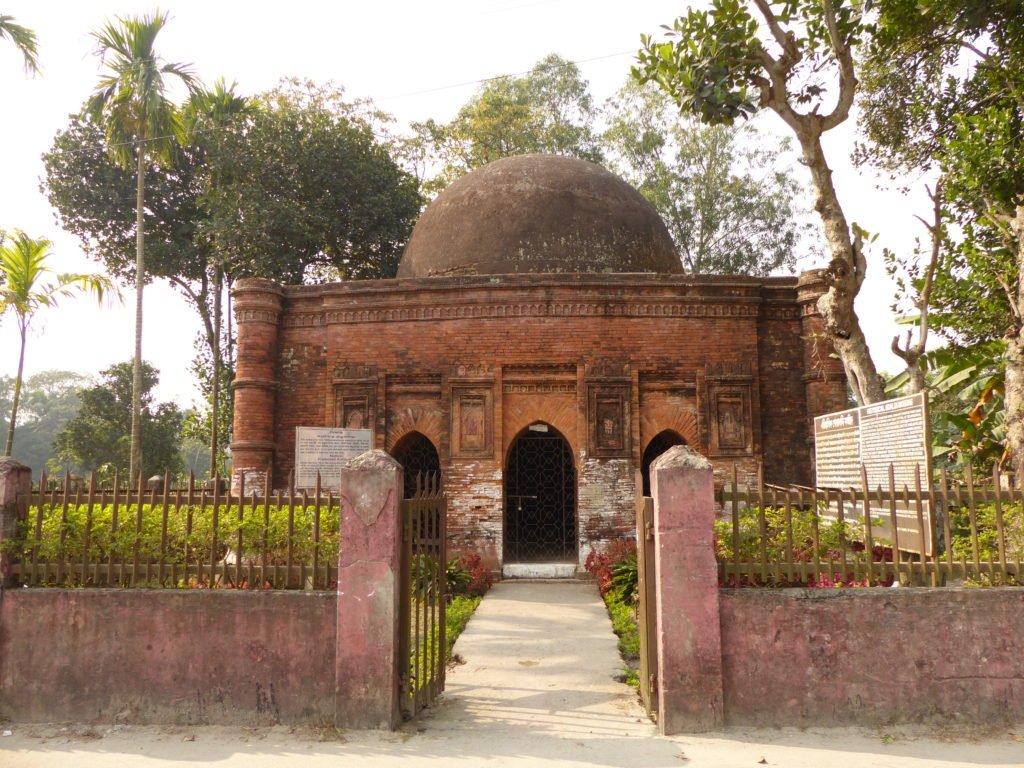
Without any mysterious problems whatsoever I returned to Dhaka and went into my hotel, waving at Mr. Ali. He was drinking tea across the street in his usual spot, where he could see into the hotel’s restaurant and signal his friend the waiter to call him if ever I seemed in need of a cycle-rickshaw.
On the day of the Rocket’s departure I made my way over to Sondarghat. As it turned out, leaving just two hours to book an Uber and cover a distance of about five kilometers in Dhaka is cutting things close. One very stressful ride later I ran up the gangway and onto the Rocket with 15 minutes to spare.
Climbing up the narrow stairs to the entrance on the top deck I asked for the first class cabins, and immediately felt like Rose’s mum on the Titanic. (Although it became quickly apparent that the only characteristic the Rocket shared with that other famous vessel was probably a shortage of lifeboats).
But my cabin was exactly what I was looking for on a classic old steamer: wooden and creaky, stuffy curtains on the window, a little side-door opening right onto the deck, and two narrow bunks.
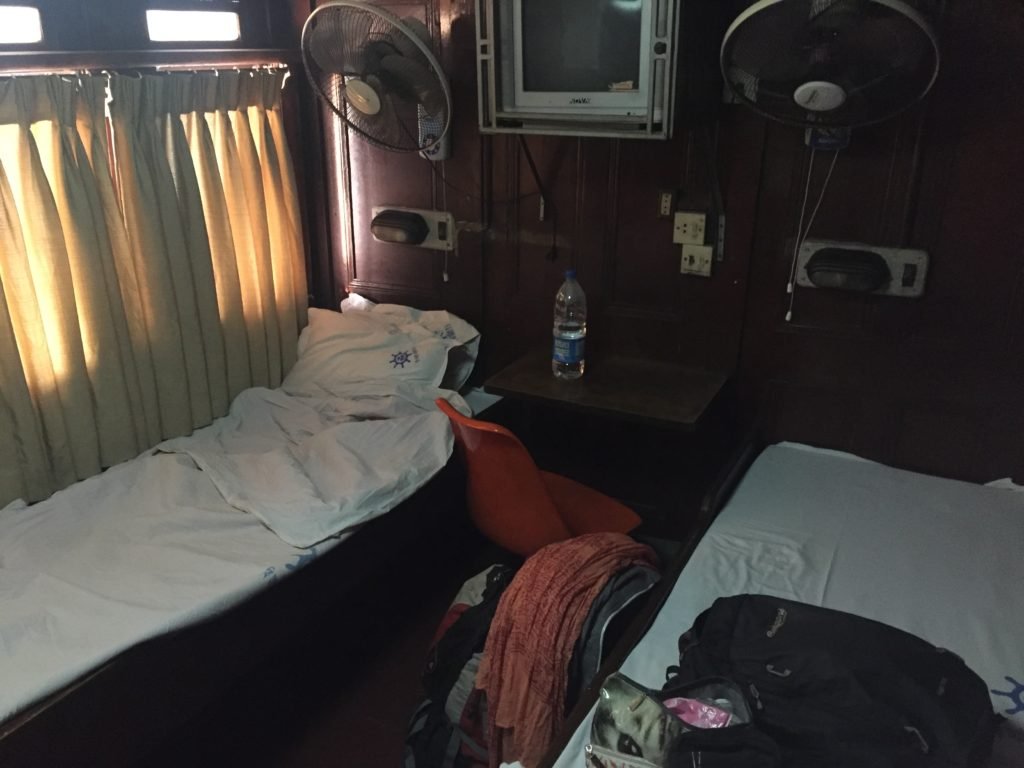
There are a handful of first class cabins ranged along the first class dining room.
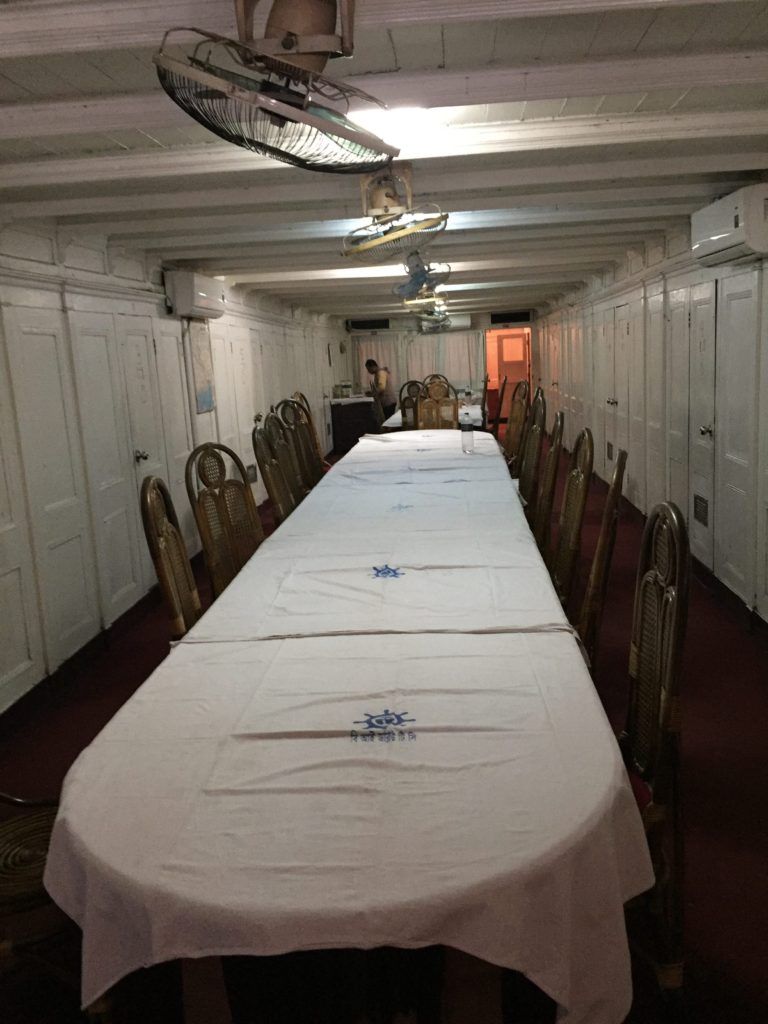
The shared toilets are at the back and they’re closely guarded by a wizened old man with a key. He allows use of the toilets on request, with the unspoken agreement being that each passenger will tip him before disembarking.
I didn’t see the second class cabins, but I did see the deck class area: open-air space at the back and below where families camped out on the floor on piles of blankets.
There’s a deck with lofty views at the bow of the boat (…first class only).
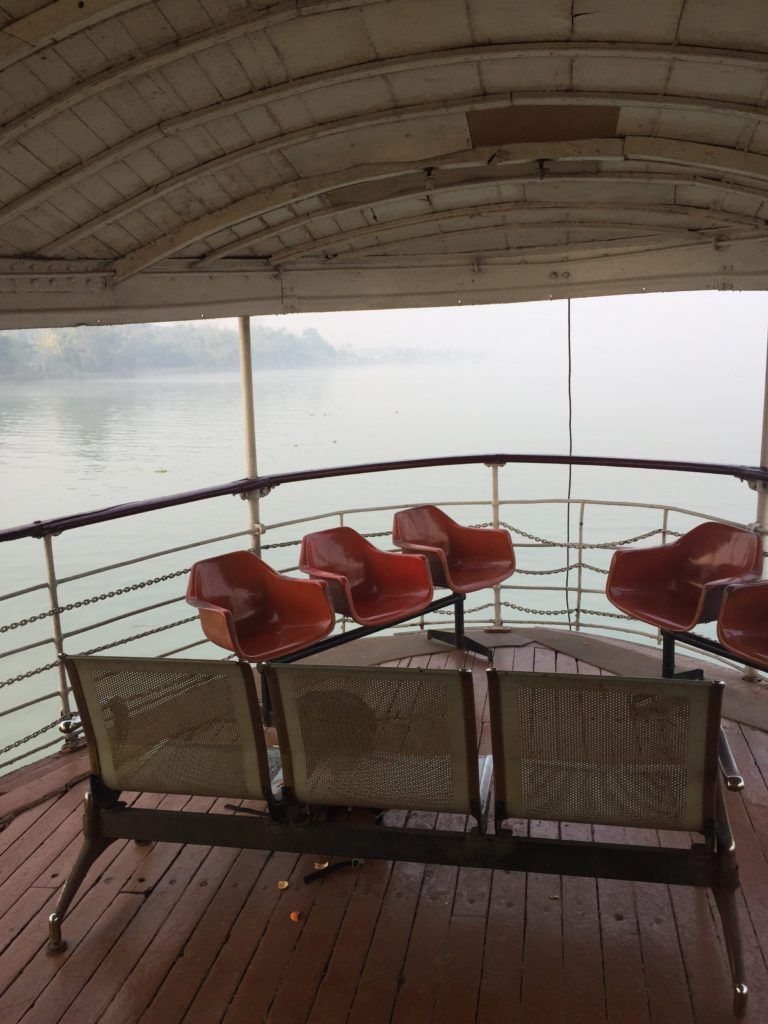
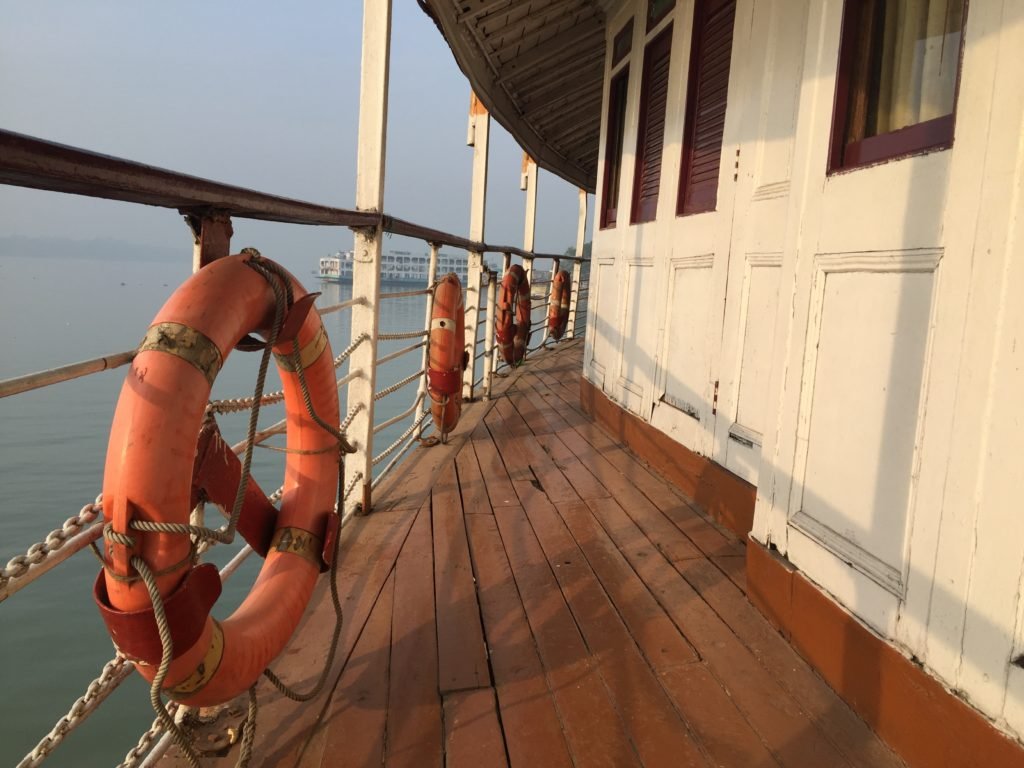
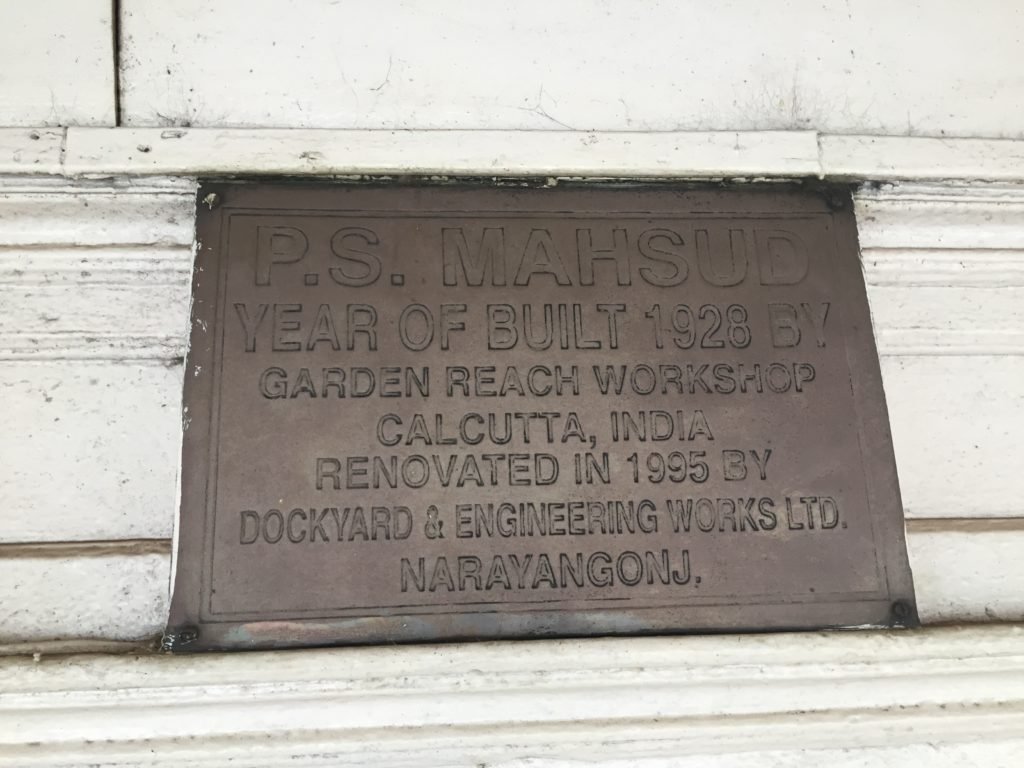
I sat on it drinking tea, and watching the city – all that light and noise – fall away behind as we left the port in the darkness. The other bigger, faster, modern ferries sailed past and soon enough the Rocket was alone on the water.
I settled comfortably in my cabin as the boat churned along, easily lulled into sleep by the gentle rocking and humming engine. The only disruption was at about 2 am when we stopped and loaded more deck passengers, and one of them stood around hoarking over the side of the deck right outside my cabin window. I thought about opening the window and expressing my disgust; then I really felt like Rose’s mum.
In the early morning sunlight I climbed up to the roof for views of Bangladesh – river country – all around me.
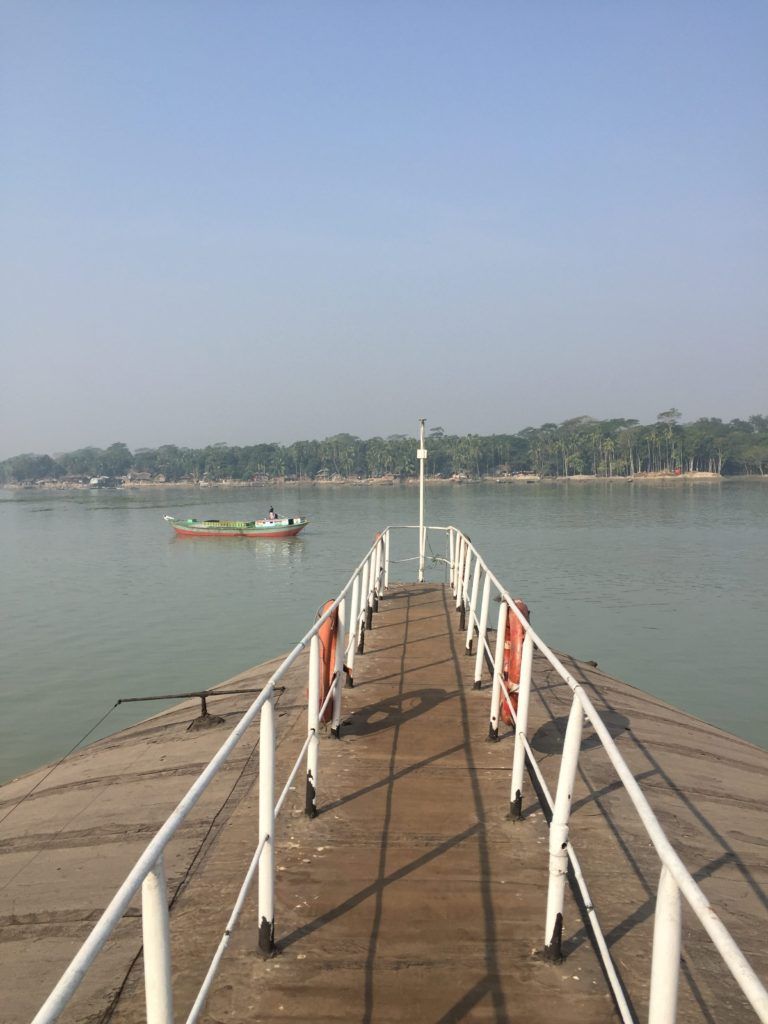
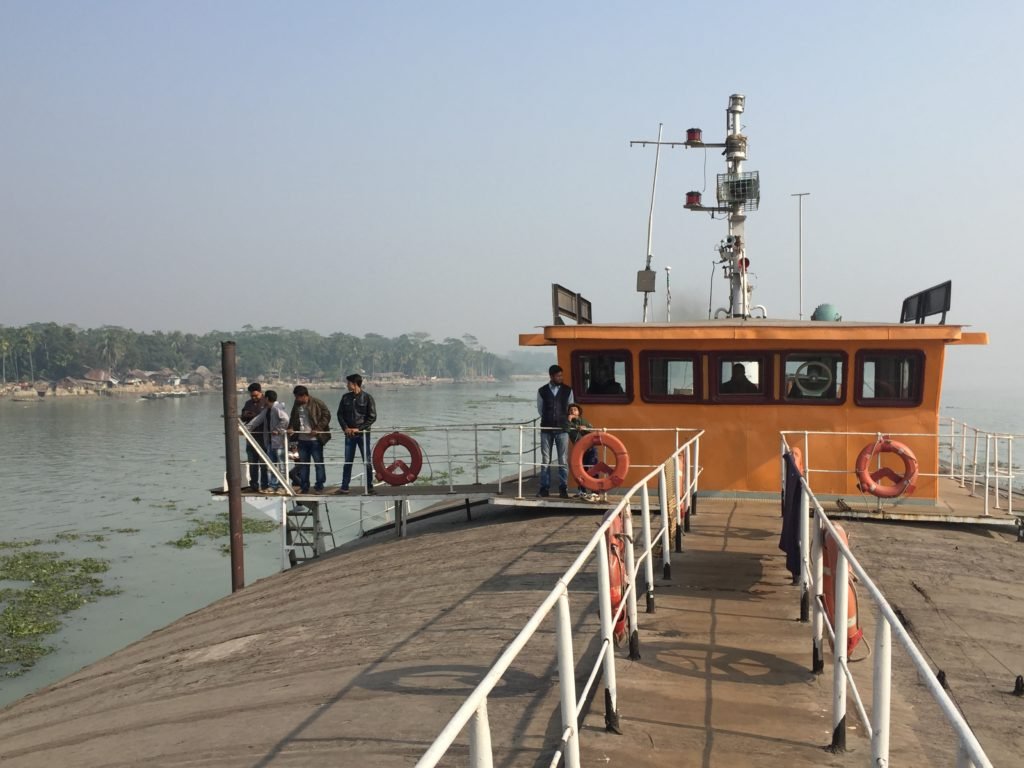
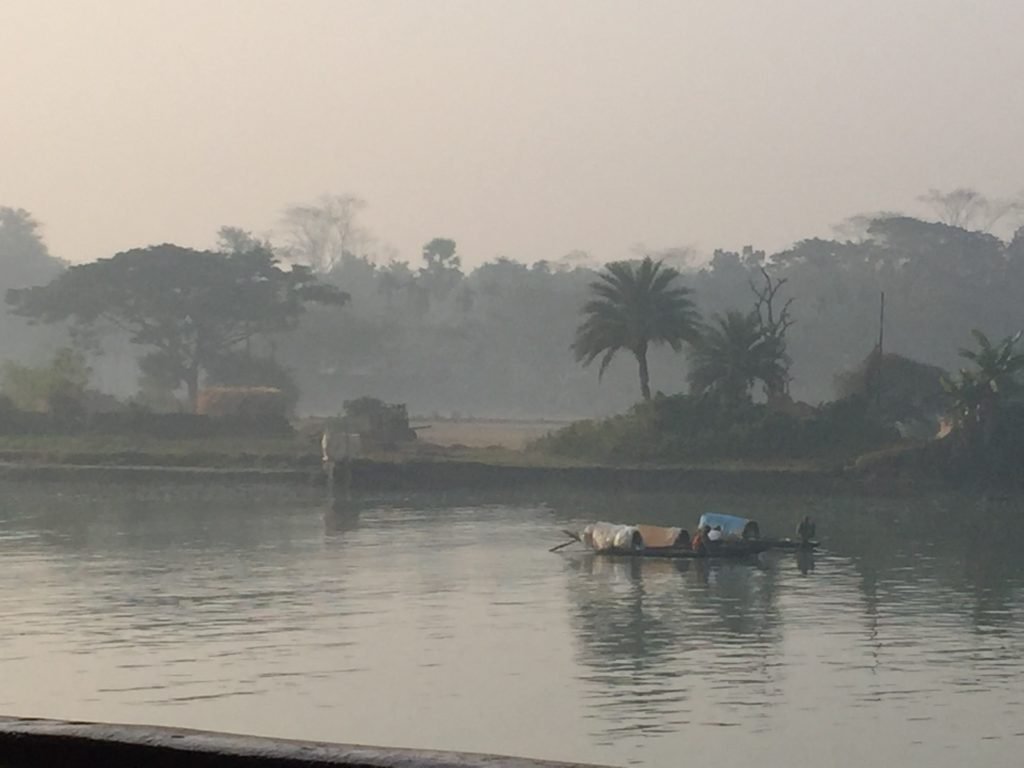
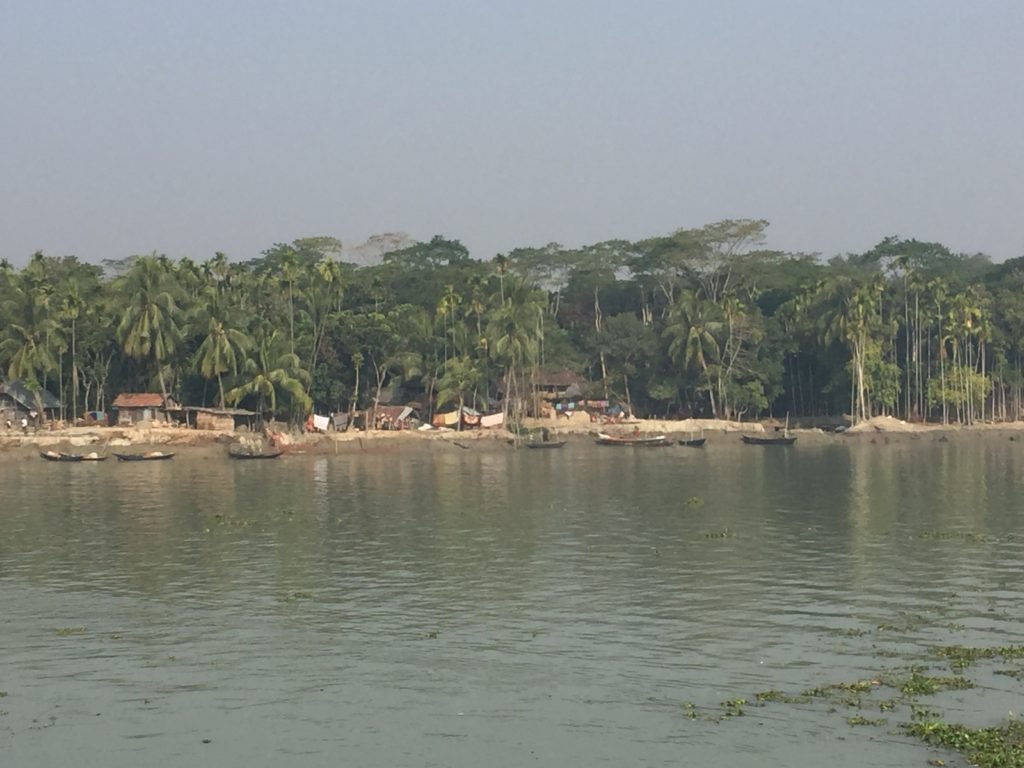
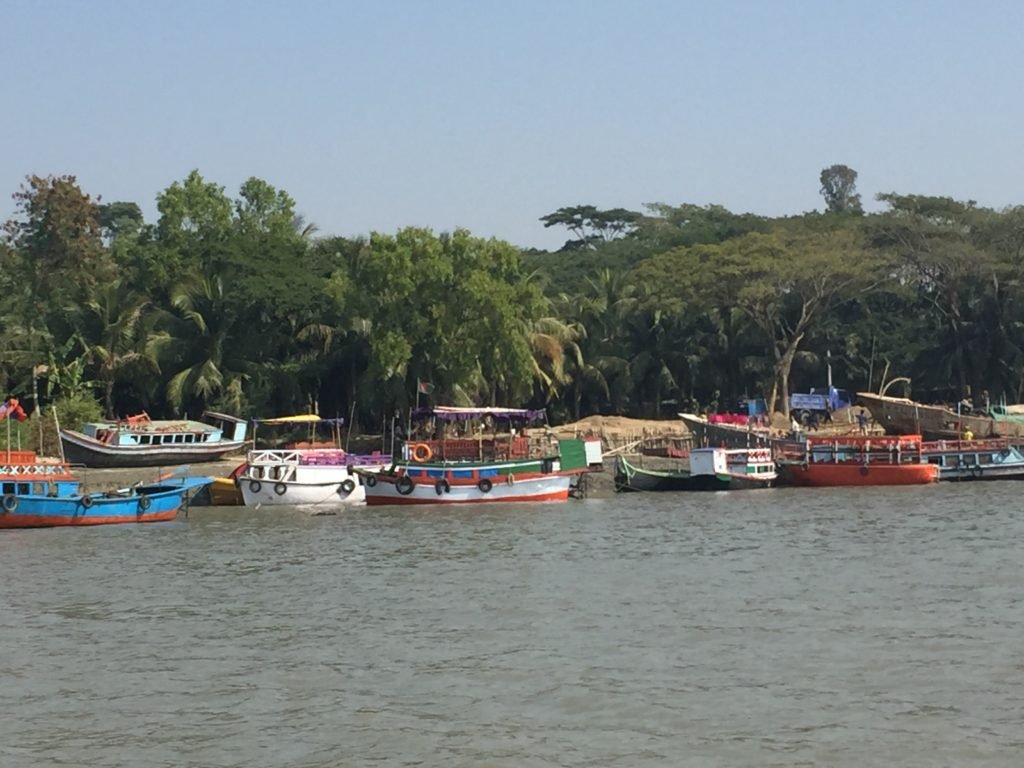
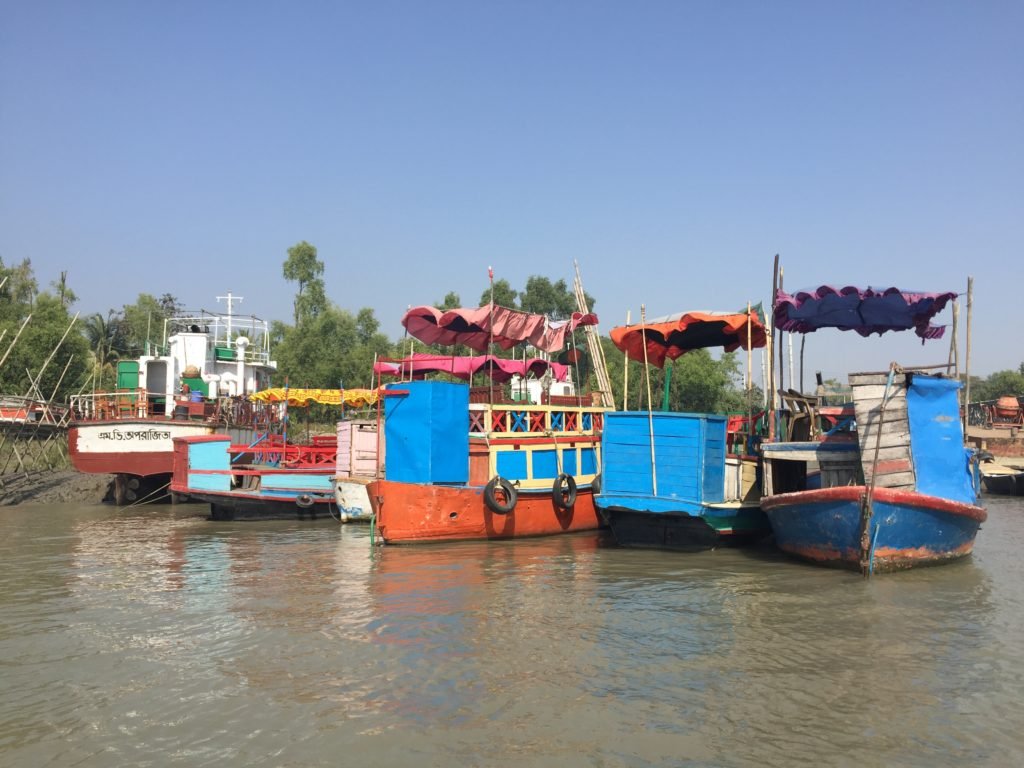
Hularhat is a tiny port but what it lacks in size it makes up for in activity and I disembarked in a frenzy of passengers who couldn’t wait their turn.
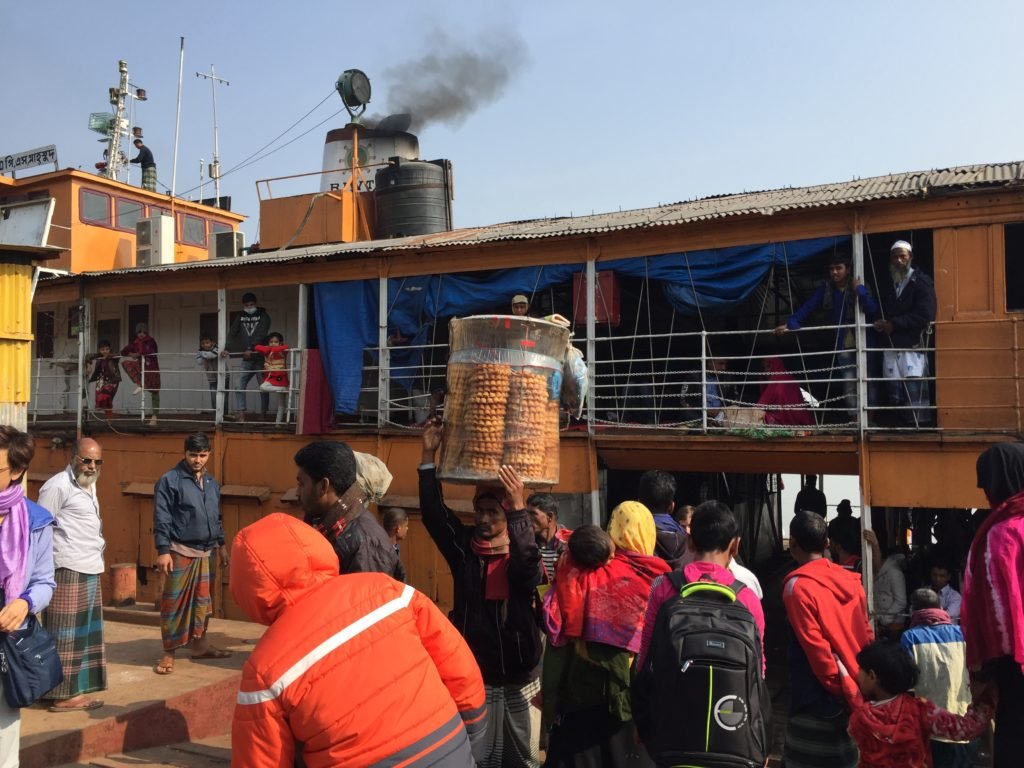
It was dark when I boarded the Rocket the previous night. I mention this because it was only once I was off the boat and turned around to get a look at it in broad daylight, that I first appreciated just how truly ‘vintage’ this vessel is.
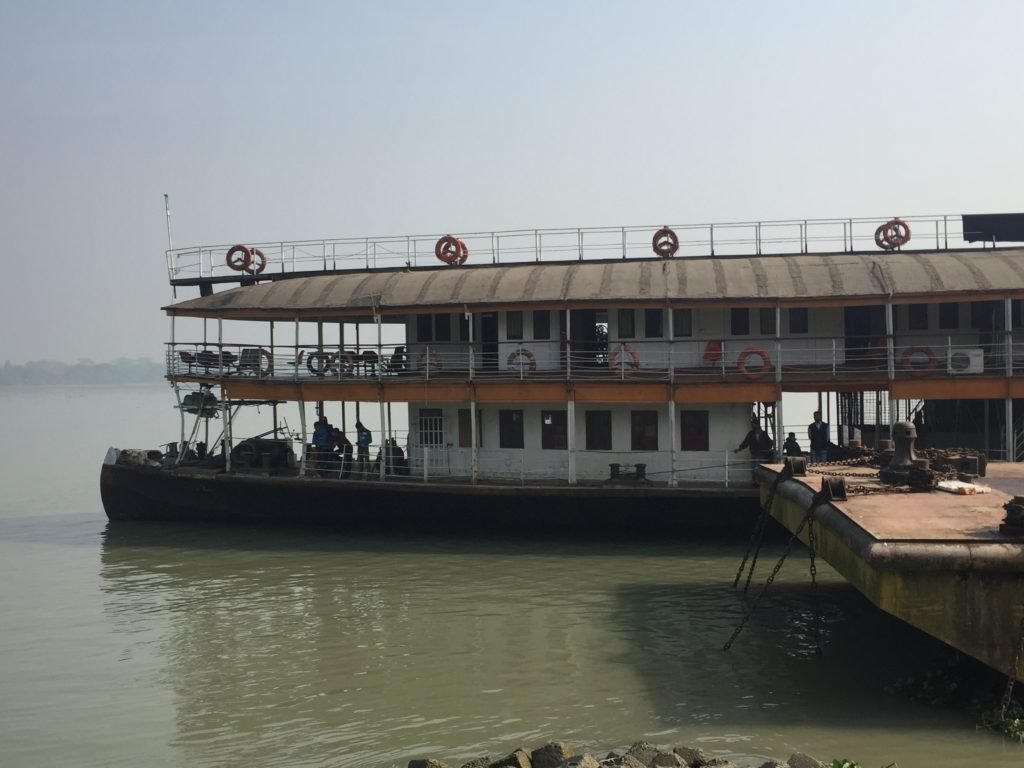
But I’d gotten a ticket on the Rocket and that was the hard part. The rest was just cruising on the river, surrounded by the beauty of peaceful water, and trees and fresh air. And hey, it didn’t sink, either.
UPDATE in 2024: I originally wrote this post during my first trip to Bangladesh in 2019, and was back in Bangladesh for a second time in March 2024. Much as I wanted to relive my earlier trip on the Rocket, to my dismay it seems like the last of the fleet has been retired. What I did instead, was take a launch from Hularhat to Dhaka. Launches travel regularly in both directions. Coming from Khulna there was no way to buy a ticket in advance. I took a local bus first thing in the morning from Khulna to Pirojpur. From there, it’s a quick CNG ride to Hularhat, directly to the launch landing. After a few hours waiting – I was never able to get a definite departure time from anyone – a launch appeared around 3.30 pm. No one was there to sell tickets until the launch actually showed up. When it did, a man set up a small table, and sold tickets – I got a first class cabin. It departed almost immediately, and arrived next morning in Dhaka. You can read about it all, here. Good times!
Read More
For more of my adventures (and misadventures) in Bangladesh, check out the rest of my stories from the road.
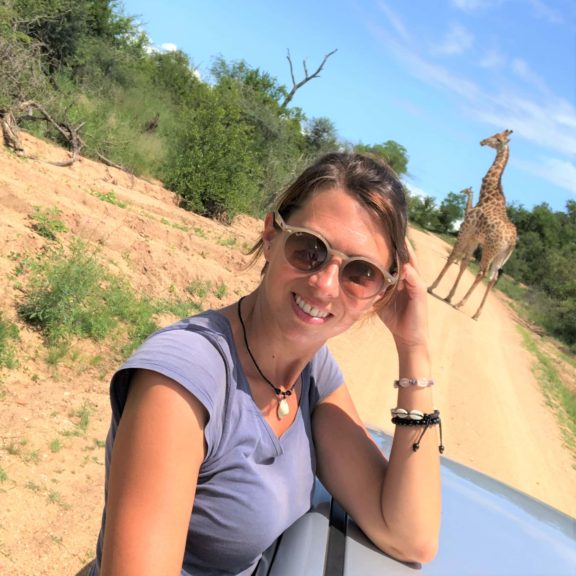
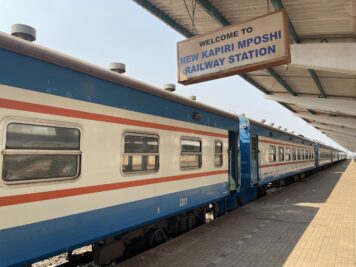
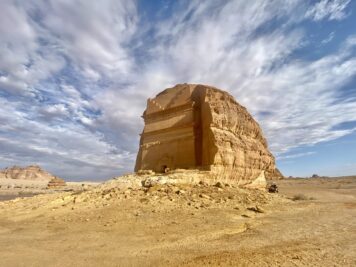
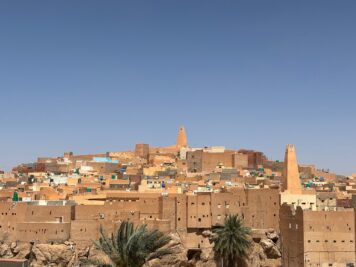
This Post Has 10 Comments
Hey Sarah! Great read. I’ve just booked to spend a month in Bangladesh for my winter break (gotta love those teaching holidays) and it seems every post I read mentions the Rocket. Really enjoyed your write-up and will catch up on more of your (mis)adventures later this eve! Thanks!
Thanks! Yeah, the Rocket is definitely the ‘big thing’ in Bangladesh, it’s fun and a good way to travel too…pretty chill (once you get a ticket, anyway). Enjoy your trip (and my stories, too;)).
Hi Sarah,
I loved reading your post! I will travel to Dhaka in early February and I guess I should also take a ferry ride. When you asked for a ticket, did they had 1st class cabins ins stock or did you had to wait for some days to go in board? I understood that tickets can not be booked from overseas and I wonder how many days in advance I need to show up at the mentioned office. I read an article by a Bangladeshi tour operator saying its necessary to book the rocket cabin 1 month before?!
Thanks a lot for your advice (and all you very interesting posts on Bangladesh)!
Thanks, I’m glad you liked it! You should definitely take the Rocket when you’re there. You can’t book online, no. So when you arrive in Dhaka, I’d do that first: go to the office and book. There isn’t a boat every day so you might need to wait (I had to wait a few days for the next one going to Hularhat). When I bought the ticket, it was no problem at all getting a first class cabin, and they weren’t full when we sailed (deck class OTOH was more than full enough to make up for it).
Spent 1962-1964 as a Peace Corps volunteer in Khulna (then East Pakistan) My first trip on the Rocket was from Dhaka to Khulna , 2nd class. Treated myself to 1st class on my last trip up the rivers on my way home in June 1964. Thanks for the trip down memory lane!
You’re so welcome! Thanks for sharing your experience here – I wonder how much things have changed, over the years…
Took the Rocket in 1994, your story brought back a lot of pleasant memories of the extremely friendly Bengali people. In my experience the best way to travel is by ship. Sincere thanks Stephen (Australian).
You’re welcome, and I’m glad it brought back memories! I agree – by ship is a fantastic way to travel. I took a cargo ferry across the Caspian Sea a couple of years ago, you might like that story on here too:)
Extra-ordinaire blog ! 👏
Un « grand » projet en préparation pour 2027…
Thank you so much for your help !
Awesome, you’re more than welcome:)
Happy travels!!